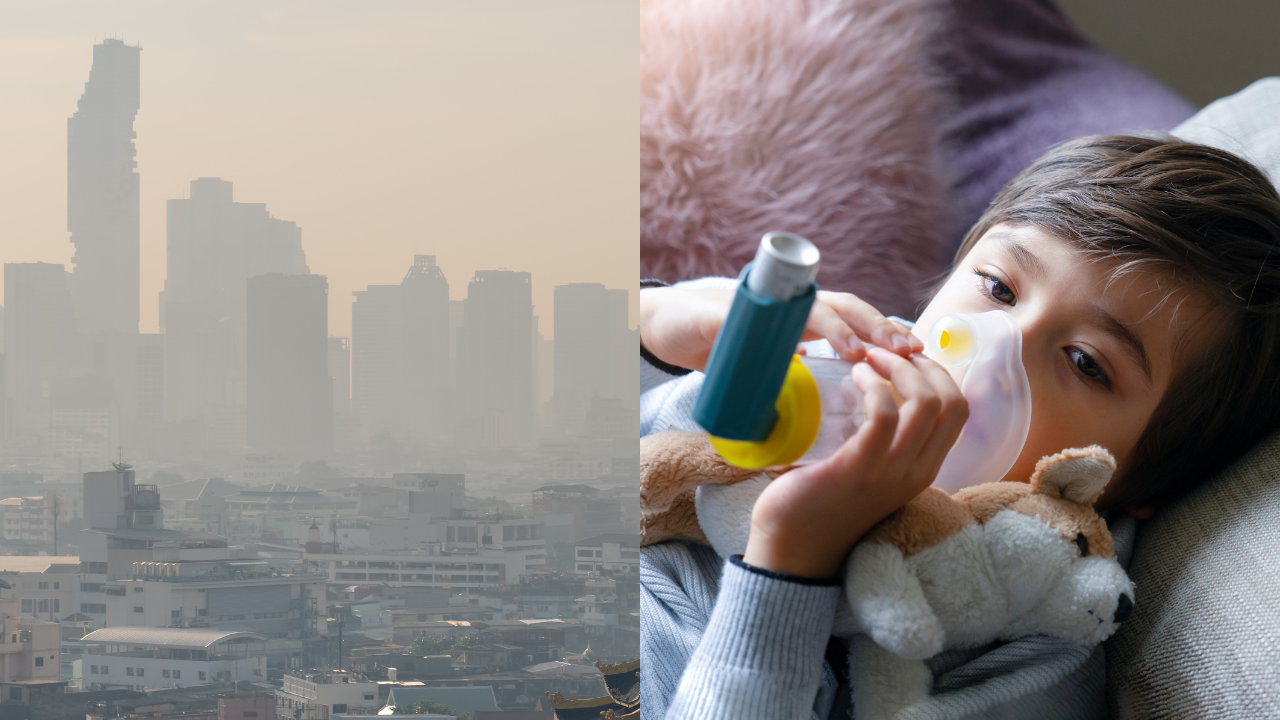-
news
-
Health
Are your children breathing danger every day? Protect them from toxic air now!
Children are highly sensitive to indoor and outdoor air pollution, increasing the risk of respiratory, cognitive and chronic diseases. Experts suggest preventive measures to protect their health.

Image – Canva
breathing in poisonous air Harmful to everyone, but Children Are more vulnerable than others. Young children, especially those between 0 and 5 years, are at greater risk. air pollution Because their airways are small and still in the developmental stage.
Their airways breathe faster and take in more air relative to their size than adults. Additionally, their immune systems are still maturing, increasing their susceptibility to the adverse effects of air pollution. Even indoors, pollutants can spread, posing significant health risks to children.
Children often spend more time in outdoor activities which may increase their chances of exposure to toxic air pollutants. Dr. Sanjeev Dutta says, “If children grow up and inhale toxic particles for a long time, it can disrupt their lung function, leading to diseases like asthma, pneumonia and bronchiolitis – inflammation of the bronchioles.” The risk of health problems increases.” HOD and Senior Consultant – Neonatology and Pediatrics, Marengo Asia Hospital, Faridabad, says that with age the lungs may fail to perform their normal function efficiently.
Children may also suffer from problems like wheezing, cough and pneumonia. “In addition, children are more likely to develop chronic diseases Like lung cancer and heart problems,” says Dr Dutta.
Many may not know, but indoor air quality It’s just as unhealthy outside. Kitchen smoke and inadequate ventilation can increase the levels of pollutants in the air. “It is important to keep your indoor air clean through air purifiers, cleaning your ducts, filters, and keeping air purifying plants indoors,” he advises.
Do not let your children go outside when the air quality is in critical condition, especially during winter. “This helps reduce exposure to harmful pollutants to a great extent. Avoid construction sites and areas with high traffic congestion. If going out is necessary, make sure your child wears a face mask at all times,” says Dr. Dutta.
Dr Dutta says exposure to air pollution in prenatal and early life can cause developmental delays, affect brain development and lead to cognitive and behavioral issues. He advises, “Improve indoor air quality with air purifiers, proper ventilation and reducing indoor sources of pollution, such as tobacco smoke, scented candles, cooking emissions and certain cleaning products.”
Prevent children from being exposed to traffic-related pollution by choosing routes away from busy roads when walking or bicycling. You can do outdoor activities in green, open areas where pollution levels are low. Use public transportation, carpool, or choose eco-friendly vehicles to reduce emissions from personal vehicles. “Avoid smoking for the sake of your little one’s health, as tiny cigarette particles not only enter your lungs, but are also absorbed by your baby’s lungs. This may cause long-term health damage,” he concluded. Therefore, it is important to ensure that your baby does not breathe cigarette smoke after birth.
Get the latest news live on Times Now with breaking news and top headlines from around the world.
air pollution


